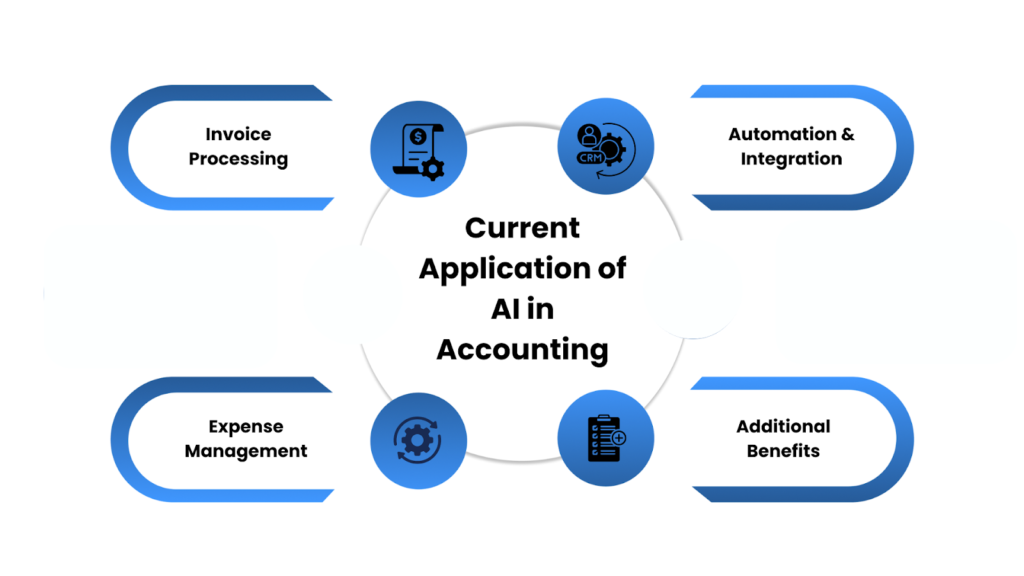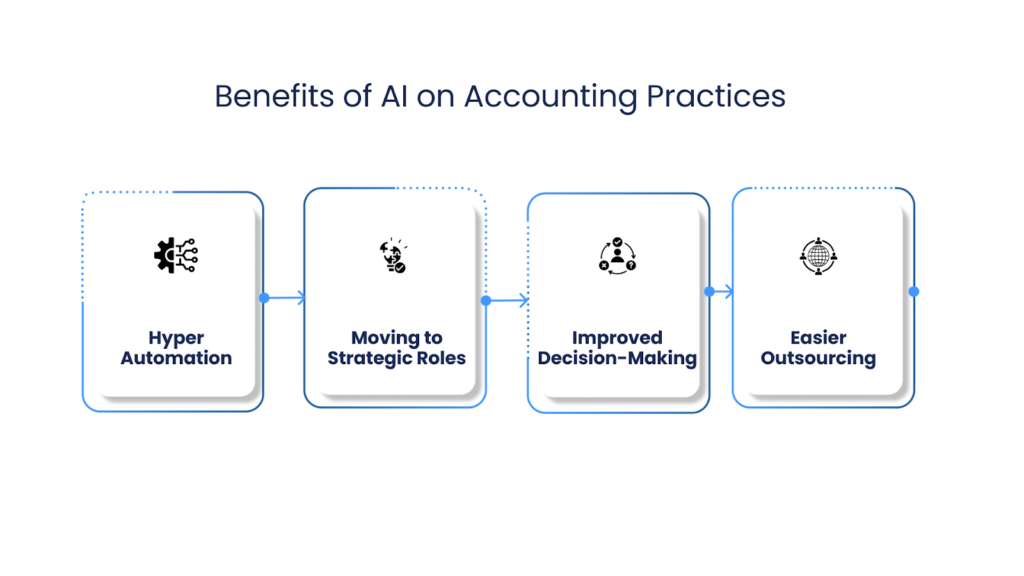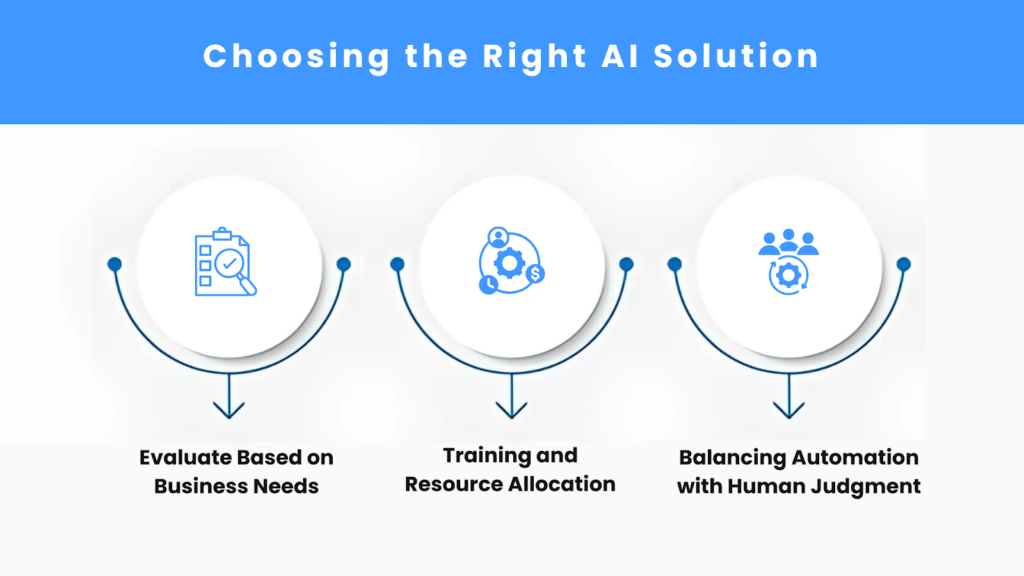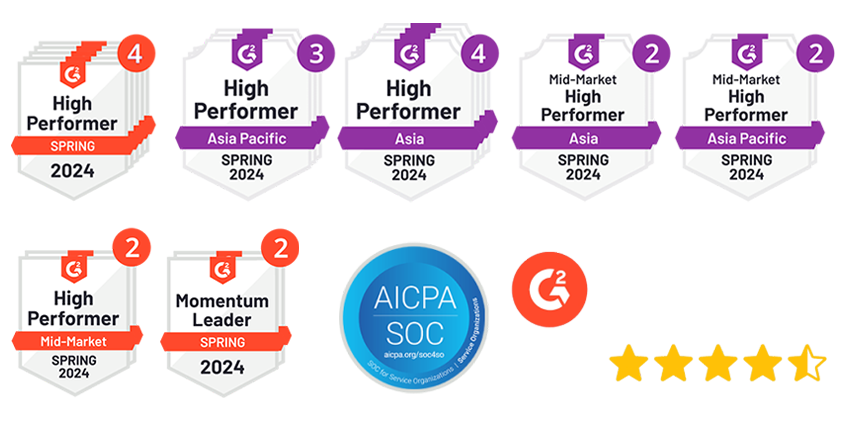As a finance professional, you often find yourself overwhelmed by invoices, receipts, and vendor documents. The hours spent on repetitive tasks can feel endless, and you know there must be a better way to handle it all.
Artificial intelligence (AI) is the solution. It is changing the accounting world, and you may wonder how it can make your job easier. The right AI tools can take care of the heavy tasks, reduce mistakes, and give you more time to focus on strategic financial decisions.
In this article, you will learn how AI in accounting transforms finance operations. We will explore the latest trends, use cases, powerful tools, and how AI can make a real difference in your daily work.
What is AI in Accounting?
AI in accounting touches upon multiple disciplines, from auditing and tax to financial planning and compliance. For auditors, AI can process large datasets quickly, detecting anomalies and errors that traditional methods may overlook, enhancing both speed and accuracy in audits. In tax preparation, AI-powered tools automate the categorization of expenses, ensuring compliance with tax regulations and reducing the risk of costly mistakes. In financial planning, AI enables predictive analytics, allowing professionals to forecast future trends more accurately, optimize cash flow management, and make data-driven strategic decisions.
Compliance teams also benefit from AI by automating the monitoring of transactions to flag potential regulatory breaches in real-time. Across all these sectors, AI enhances precision, reduces manual workload, and shifts the focus from routine tasks to more strategic financial planning and decision-making.
Current Application of AI in Accounting

AI is reshaping how you handle day-to-day tasks in accounting. Here are some of the core functions of AI that can significantly impact your work:
- Invoice Processing
AI enhances both Accounts Receivable (customer invoices) and Accounts Payable (vendor invoices) through the following applications:
- Receiving Supplier Invoices:
- Automates the intake of invoices for expenses, fixed assets, and inventory items.
- Data Matching and Verification:
- Matching Invoices with Purchase Orders and Receiving Data: Ensures that invoices correspond accurately to purchase orders and received goods.
- Invoice Verification and Supplier Validation: Uses AI to verify the authenticity of invoices and validate supplier information.
- Account Coding and Approvals:
- Account Coding: Employs Natural Language Processing (NLP) and machine learning (ML) to accurately categorize expenses, enhancing the accuracy of the chart of accounts.
- Approvals: Streamlines the approval process through automated workflows, reducing manual intervention.
- Payments:
- Automated Payments: Facilitates timely payments by automating the payment process.
- Payment Status Notifications: AI-driven systems send real-time payment status updates to suppliers and vendors via portals and email.
- Automated Payment Reconciliations: Generates real-time reconciliations to ensure financial accuracy.
- Fraud Detection and Error Reduction:
- AI systems detect fraudulent activities and identify errors within invoices, enhancing financial security and accuracy.
- Automation Technologies:
- Optical Character Recognition (OCR): Captures invoice data headings and line items electronically.
- Robotic Process Automation (RPA): Automates repetitive tasks, eliminating time-consuming paper handling and manual data entry.
- Generative AI Tools (e.g., ChatGPT): Assists in enhancing chart of accounts coding accuracy and other automated processes.
- Expense Management
AI-driven solutions improve expense management by leveraging data analysis and business intelligence:
- AI-Based Data Analysis:
- Financial Analysis: Analyzes financial statements, revenue, and expense trends to identify anomalies and provide insights.
- Spend Management: Identifies opportunities for cost savings by analyzing company spending patterns.
- Operational Efficiency: In manufacturing, AI combined with IoT sensors helps identify opportunities to reduce costs from rework and scrap, enhancing overall operational efficiency.
- Business Intelligence and Decision-Making:
- Real-Time Dashboards: Provides up-to-date business intelligence through interactive dashboards.
- Digital Assistants (e.g., ChatGPT’s Ask Pi): Supports routine and significant financial decisions by offering expert system guidance.
- Automated Reporting: Generates comprehensive reports that aid in strategic financial planning and decision-making.
- Error Reduction and Compliance:
AI minimizes human errors in expense reporting and ensures compliance with financial regulations through automated checks and validations.
- Enhanced Coding and Reconciliation:
AI improves the accuracy of expense categorization and automates the reconciliation process, ensuring that expenses are correctly recorded and managed.
- Automation and Integration
- End-to-End Automation:
Supplier Onboarding: Automates the onboarding process for new suppliers, integrating them seamlessly into the accounts payable system.
Accounts Payable and Expense Management: Uses AI and RPA to create fully automated workflows, enhancing efficiency and reducing manual workload.
- Integration with Other Systems:
ERP Systems and IoT: Connects with Enterprise Resource Planning (ERP) systems and IoT devices to provide real-time data for more accurate financial management and forecasting.
- Additional Benefits
- Streamlined Operations:
Eliminates time-consuming tasks such as paper document handling and manual data entry, allowing accounting teams to focus on more strategic activities.
- Scalability and Efficiency:
AI-driven systems can easily scale with business growth, maintaining efficiency and accuracy in invoice processing and expense management.
- Enhanced Communication:
Automates communication with suppliers and vendors, ensuring timely and accurate information exchange regarding payments and invoice statuses.
AI Trends in Accounting
AI is making significant improvements in the accounting industry, and staying updated on these trends can help you leverage technology effectively. Here are some key trends to watch:
- Data Summarization for Real-Time Insights
NLP tools, like ChatGPT, are increasingly used to interact with accounting systems via voice or text. Accountants can now ask financial queries in plain language, and AI will generate accurate responses, making data access more intuitive and faster. This trend helps accountants with faster decision-making, improving efficiency in client consultations.
- Predictive Data Analytics for Pattern and Risk Detection
AI can identify patterns in financial data that may go unnoticed by human analysts. With predictive analytics, you can forecast trends, helping you spot potential risks before they become issues. This capability enhances your ability to plan strategically and allocate resources effectively.
- Integration into Practice Management Solutions for Workflow Efficiency
Many AI tools now integrate seamlessly into existing practice management solutions. This integration helps streamline workflows, ensuring you spend less time on manual processes. As a result, your team can focus on high-value tasks that require human judgment.
These trends reflect a shift towards smarter accounting practices. By embracing AI, you can transform your role from a reactive problem-solver to a proactive strategist.
Benefits of AI on Accounting Practices

AI is changing how you work in your organization. Here’s how:
- Hyper Automation
- AI can automate complex processes like invoice processing and financial reporting by integrating AI, ML, and RPA.
- By combining AI and ML it can analyze data, predict trends, and optimize workflows without human input.
- Moving to Strategic Roles
- AI takes over tasks like data entry and invoice processing. This frees up your time for planning and analysis.
- Tools like Peakflo automate vendor reconciliations and find anomalies automatically. This allows you to focus on cash flow trends and long-term plans.
- Improved Decision-Making
- AI looks at large amounts of data and gives you insights. This helps you make better decisions, like predicting trends or managing risks.
- With AI, you can spot risks or opportunities early. This helps guide your company to smarter financial choices.
- Easier Outsourcing
- AI keeps financial data accurate and well-organized. This makes it easier for external auditors or consultants to work with your data.
- Peakflo automates invoices, payments, and reconciliations. This makes it simple to share your financial data with others.
AI does more than save time. It shifts your role to being a strategic advisor, so you can focus on planning, decision-making, and long-term success.
Challenges of AI Implementation
AI brings many benefits, but there are challenges to be aware of. Knowing these can help you use AI more effectively.
- Understanding Complex Situations
AI is good at handling data and automating tasks, but it may not understand complex financial situations. For example, you can automate tasks like document sorting, but you may still need to step in for unique cases that do not fit a set pattern.
- Security Risks
Using AI to manage sensitive financial data comes with security concerns. Even with secure tools, it is important to make sure your data is safe from breaches or hacks. Always check that the AI tool has strong security protections.
- Keeping Customer Trust
Automating too much can distance you from your customers. Trust is key in accounting, and people may prefer personal interactions. While AI can handle tasks like reminders, staying connected with your customers is crucial for keeping their trust.
Balancing the use of AI with human oversight is key. AI can improve your accounting work, but you still need to monitor it for accuracy and to maintain strong customer relationships.
Will AI Impact Traditional Accounting Jobs?
The integration of AI into accounting is reshaping traditional roles rather than eliminating them. While AI handles repetitive and time-consuming tasks, it enables accountants to focus on more strategic and value-added activities. Here are some key impacts:
- Shift to Strategic Roles: Accountants can concentrate on financial analysis, planning, and advisory services as AI manages routine tasks.
- Creation of New Opportunities: New roles such as AI specialists and data analysts are emerging within the accounting field.
- Enhanced Skill Requirements: Professionals need to develop skills in AI tools and data analytics to stay competitive.
- Increased Job Satisfaction: By reducing mundane tasks, AI allows accountants to engage in more meaningful and intellectually stimulating work.
- Maintaining Human Oversight: Despite automation, human judgment remains essential for interpreting AI outputs and handling complex financial scenarios.
- Adaptability is Key: Embracing and adapting to AI technologies ensures that accounting professionals remain relevant and valuable.
Like every other sector, balance is the key here.
AI Tools for Accountants
Choosing the right AI tool can make a huge difference in your accounting workflow. Here’s a look at some top AI tools and how they can help you.
1. Peakflo
Peakflo’s AI solution is designed to simplify both accounts payable and receivable. If your team spends hours on manual data entry, vendor reconciliation, or cash application, Peakflo can automate these tasks.
Key Features:
- Document Structuring & Digitization: Peakflo captures, digitizes, and structures unstructured documents like receipts, invoices, or credit notes from various formats and channels like email and WhatsApp.
- Document Categorization, Analysis, and Search: Automate document classification into predefined or custom categories, allowing your team to manage and analyze hundreds of attachments in seconds. The added benefit is the ability to instantly locate any document with intuitive queries, saving hours of manual searching.
- Multi-language Support: It processes documents in 41 languages making it ideal for international transactions.
- Anomaly Detection: It spots out-of-policy or duplicate claims in real-time, helping you prevent fraud.
- Compliance Check: Peakflo automatically checks contract and invoice details and flags any discrepancies, ensuring accuracy and saving time.
- AI-Powered Reports: Get real-time financial insights, predicting cash flow trends and customer payment behaviors to enhance decision-making.
- Accelerated Vendor Reconciliation: Speed up supplier statement reconciliations by 20x. Peakflo uses AI-driven statement capture, allowing vendors to submit statements via email or through a portal, and automatically extracts the data. It also identifies mismatches and facilitates communication with vendors for faster resolution and correction.
- Cash Application Automation: It matches payment remittance and bank statements with invoices automatically and flags discrepancies for review, saving time on cash posting.
- Scalability: Whether you handle hundreds or millions of documents, Peakflo processes them quickly.
- Accuracy: It provides 95% accuracy for different document formats, reducing errors.
- Security: SOC 2 Type 2 certification ensures your data stays secure.
Who It’s Best For: Peakflo is great for businesses managing many invoices, vendors, or international transactions. It’s perfect for companies that need a reliable system for accounts payable and receivable.
2. Botkeeper
Botkeeper helps automate routine bookkeeping tasks. It tracks finances in real-time and works well with QuickBooks, handling data entry and reconciliation without much human input.
Best For: Accounting firms looking to automate basic bookkeeping tasks.
3. Docyt
Docyt automates managing financial documents. It helps businesses organize and digitize large volumes of invoices and receipts, reducing manual entry.
Best For: Firms that deal with many financial documents and need better organization.
By using AI tools like Peakflo, you can automate manual work, improve accuracy, and save time. This allows you to focus on more important tasks like planning and decision-making.
Choosing the Right AI Solution

Selecting the right AI tool can mean the difference between smoother workflows or added complications. Here are some key points to help you choose wisely:
- Evaluate Based on Business Needs
- Different AI tools serve different needs. The size of your team, the number of documents you process, and the complexity of your tasks all play a role.
- For example, if your business handles many invoices from international vendors, a tool like Peakflo, which can process documents in 41 languages, may be the best choice.
- Training and Resource Allocation
- AI tools reduce manual work but still require training. Your team needs to know how to use the tool and integrate it into your current workflows.
- Start small if your team is new to AI. Begin with simple tasks like invoice processing before moving on to more complex tasks.
- Balancing Automation with Human Judgment
- While AI can automate many tasks, it cannot replace human judgment. You still need to oversee important decisions.
- For example, Peakflo can handle vendor reconciliations, but you will still need to review flagged items for final approval.
Choosing the right AI solution means understanding your business needs and preparing your team to use the tool effectively. With the right balance of automation and human insight, you can get the most out of AI in your accounting processes.
Next, Let us wrap it up with a quick recap.
Conclusion
AI is changing how accounting works. It can reshape your daily tasks in big ways. By automating tasks like data entry and reconciliation, AI saves time and gives you insights that help with decisions. It turns you from a task manager into a strategist.
But AI is not here to replace accountants. It works alongside you, handling repetitive tasks while you focus on complex financial decisions. Your insights are still what drive good decisions.Want to make accounts payable and receivable easier with AI? Book a demo with Peakflo to see how it can save you time, reduce mistakes, and let you focus on important tasks.



